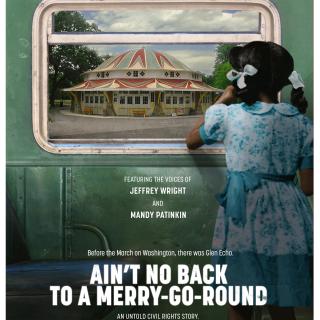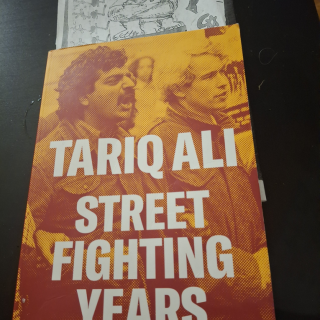As the book editor for the Columbus Free Press, I am currently reading Jimmie Lee & James: Two Lives, Two Deaths and the Movement That Changed America, by Steve Fiffer & Adar Cohen. The book shines a light on two neglected deaths that occurred during the campaign for voting rights in the South. Jimmie Lee Jackson was a young African American man, a father, a deacon at his church and determined to be free in his lifetime. James Reeb, a white minister in the Unitarian Universalist Church, was a husband and father of four.
Reeb was one of the many ministers who had answered a call from the Southern Christian Leadership Conference (SCLC) to come to Selma and work in the campaign for African Americans’ voting rights. Their deaths, especially that of Reverend Reeb – white outrage trumps black lives every time – were the catalyst that moved President Lyndon B. Johnson to send a voting rights bill to Congress. Outside of the movement their deaths are little known, especially that of Jimmie Lee Jackson. Keep your eye on The Free Press for the review.
I learned to read when I was four years old; I was taught by my older sister Marva and I’ve loved it – and school – ever since. While it’s not possible for me to name my favorite books – there are so many – I can name three books that made a profound impact on me that has lingered to this day. This Little Light of Mine, by Kay Mills, was the first biography of the great freedom fighter Fannie Lou Hamer. A Mississippi sharecropper with a sixth grade education, Hamer was one of the most dynamic leaders in American history. She had a steely determination, a childlike faith in God, and an unwavering moral compass.
I often think of her as the original angry black woman. She put that anger to good use as a tireless and courageous advocate for the poor. Who could be afraid after spending time with Hamer? She bedeviled mealy-mouthed politicians, including Lyndon B. Johnson, stood up to the country’s worst segregationists and shamed America into doing what was right. When I play in my African American history classes the incendiary speech she made at the 1964 Democratic convention, I get goose bumps. While the late Barbara Jordan sounded like God at his most prim and proper, Hamer sounded like God as your best sistah friend telling you why that lowdown man is no good for you. She spoke truth to power and nearly forty years after her death is still a terrific example that one doesn’t have to be rich, beautiful, thin or white to make change.
Without Sanctuary: Lynching Photography in America, by James Allen, Hilton Als and Leon F. Litwack, is a book so disturbing that when I purchased it in 2000 it was shrink wrapped. Indeed the staff at Little Professor Book Store was sure I had ordered the wrong book. Who would read something like this? Allen and Als collect lynching artifacts such as postcards and other ephemera, and they have been prescient and courageous enough to take their show on the road; I saw it at a conference at Emory University in Atlanta. The collection has also been on display in New York City, Pittsburgh, Detroit, Chicago, Charlotte, North Carolina, Jackson, Mississippi and the Underground Railroad Freedom Center in Cincinnati. (My dream is to bring it to Columbus.)
I wrote my doctoral dissertation on the lynching of black men by white mobs in Ohio in the late nineteenth and early twentieth centuries. This book makes me more determined than ever to rescue those untold stories and honor the victims of this horrific crime.
Finally, I was deeply influenced by There Are No Children Here: The Story of Two Boys Growing Up in the Other America, by Alex Kotlowitz. Lafeyette and Pharoah Rivers are brothers who lived in Chicago’s Henry Horner Homes, one of the worst public housing complexes in America. Although written in 1991, it is still the best book on being poor, black and young in urban America I have ever read. I cried when I read it the first time, and even now when I look at it I get furious all over again. One thing is for sure, though: Kotlowitz made me realize that activism can also be a sharp pen and an inquiring mind. I know that by writing I’m doing something important and valuable.
Jonathan Beard, Publisher
The Rejected Stone, by Rev. Al Sharpton. Rev. Al takes a look back at his life, and discusses American leadership and his own life journey towards leadership. This is a great way to learn from a lifelong civil and human rights advocate about the phases in the evolution of his advocacy, and the principles of leadership he has learned along the way.
Lord Jim, by Joseph Conrad. Conrad writes about man, man in nature and the nature of man. His imagery and his ability to express the philosophical underpinnings of different characters in the novel are breathtaking.
Jonathan Livingston Seagull, by Richard Bach. This book was given to me by my father, when I was a child. It is a book about liberating yourself from the mundane, and achieving new and beautiful things in so doing.
The Prophet, by Kahlil Gibran. Gibran distills all of spiritual and religious thought in beautiful poetry. He tells the ultimate story of how to be, and how to think about life and its many aspects. A very contemplative read.
Any collection of speeches by El-Hajj Malik El-Shabazz (Malcolm X), Dr. Martin Luther King, Jr., or Marcus Garvey, or the autobiographies of any of these historical greats. Each of these men stood up for what they thought was right, at considerable personal risk and cost, and showed how honest and brave free men can be.
Julie Whitney Scott, columnist
One of the books that I read as a 15-year-old in 1971 was If They Come in the Morning: Voices of Resistance by Angela Y. Davis, Ruchell Magee, The Soledad Brothers, and other political prisoners. This book gave me clear insight into the prison system based on the direct experiences of intelligent, politically-involved and engaged Black American radicals. It opened my mind to the fact that the American prison system was an organized political machine with the number one goal of continuing the slavery of a Black race of people, especially the Black male, and thus the Black family. Although I didn’t and don’t believe in violence, I do believe in speaking out about the injustices in America against my race of people without fear or being apologetic.
Pat Marida, writer
What changed my life was when my son Kenny gave me Carl Sagan’s book Cosmos for Mother’s Day in 1981. I read the last chapter which was about nuclear weapons and nuclear war, and how all life on Earth could be extinguished. That was so serious that I, myself, had to do something about it. It took me a year to work through the emotional experience of being “born again” in this way.
Harvey Wasserman, Senior Editor
When I was at the University of Chicago, confronting the Vietnam War, I read The Great Fear in Latin America by John Gerassi. It laid out the brutality of US imperialism south of the border. But it struck me as being very similar to what was happening in Vietnam. When I made the connection, it was a big leap forward in my understanding of the world.
Suzanne Patzer, Assistant Editor
The Re-enchantment of the World by Morris Berman explains how the advent of science and Cartesian philosophies contributed to our western belief that humans are separate from and should dominate our natural environment, leading to the eminent destruction of our planet.
Soul of a Citizen: Living with Conviction in Challenging Times by Paul Loeb tells stories of everyday people who became activists and should inspire readers to keep working for social change.
Ruben Herrera, local activist
I am just a simple person who struggles with my level of consciousness and transformation. Sometimes I think that maybe I would be happier if I did not understand the world as I do. But in reality, I find happiness in the fight and struggle for freedom, justice and liberation. Many factors have brought me to this point. Without a doubt, it includes a few important elements: the people I have met, those I have learned from, and that which I have read.
I was fortunate to have combined all three of these at Portland State University when I was invited to participate in a week long class led by Paolo Freire several years before his death. It was in group dialogue that I read one of the most influential books in my struggle: Freire’s Pedogogy of the Oppressed.
My transformational struggle is grounded in what I learned from Freire himself – transformation can be achieved through dialogical education or conversations that matter. This must include both action and reflection, and requires faith, humility, hope, and critical inquiry from all involved. It creates communication, and communication creates true education. Communication can be fostered only through a common language and this must be the language of the people.
Bob Fitrakis, Editor-in-Chief
Democracy for the Few by Michael Parenti. I had the good fortune of being assigned this book my freshman year in college. It provoked critical thought on whether economic elites and corporate oligarchs run the U.S. government, or do the people rule. The book also revealed U.S. government propaganda efforts and covert operations to mislead citizens.
Socialism by Michael Harrington. Harrington’s tour de force on the history of American socialism and its often-hidden and suppressed contributions to our society, the book lays out his realignment strategy to shatter “American Exceptionalism” and create a real “democratic left” force in U.S. politics, a strategy now being witnessed through the historically significant Bernie Sanders campaign.



